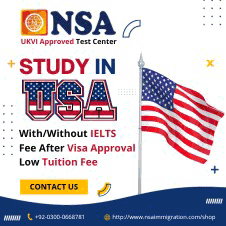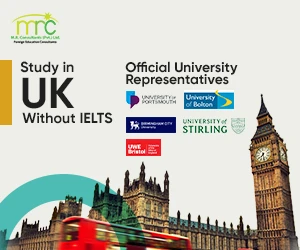
The scope for international students studying abroad is broad and offers several advantages including global network building, exposure to a new culture and competitive edge in job market. The scope and benefits of studying abroad can vary depending on the country, institution, and individual circumstances. It's advisable for students to carefully research and consider their goals, preferences, and financial considerations when making a decision to study abroad. Studying abroad is an exciting and rewarding experience, but it also comes with its fair share of challenges.
3 Common Challenges And Suggestions To Combat While Studying Abroad
When applying for studying abroad, students may face various challenges. These are a natural part of the study abroad application process. By staying organized, seeking guidance, and putting in effort and dedication, you can overcome these challenges and increase your chances of a successful study abroad experience. Here are three common challenges to combat when planning to study abroad:
Language Barrier
Many study abroad programs require a certain level of English language proficiency, such as a minimum score on tests like IELTS or TOEFL. Language barriers can be challenging, especially for non-native English speakers. To combat this challenge:
-
Start preparing for language tests well in advance and consider taking language courses or engaging in language practice activities.
-
Practice English regularly by speaking with native speakers, watching movies or TV shows, and reading books or articles in English.
-
Seek assistance from language tutors or take online courses to improve your language skills.
Financial Constraints
Studying abroad can be expensive, including tuition fees, living costs, accommodation, travel, and visa expenses. Financial constraints can be a significant challenge for many students. To combat this challenge:
-
Research and explore scholarship opportunities offered by universities, governments, and external organizations.
-
Consider part-time work options available for international students in the chosen study destination to supplement your finances.
-
Create a realistic budget and explore cost-effective options for accommodation, transportation, and daily expenses.
Visa and Documentation
Obtaining a student visa and completing the required documentation can be complex and time-consuming. Each country has its specific visa requirements and application processes. To combat this challenge:
-
Start the visa application process early to allow sufficient time for gathering necessary documents and completing all requirements.
-
Consult the official government websites or seek guidance from the consulate of the chosen study destination for accurate and up-to-date information.
-
Seek assistance from education consultants or professionals who specialize in study abroad programs to guide you through the visa application process.
Frequently Asked Questions
1 - How can I overcome financial challenges in funding my study abroad program?
Research scholarships, grants, and financial aid options specifically available for international students. Create a budget and explore cost-saving measures, such as finding affordable accommodations and managing daily expenses wisely. Consider part-time work opportunities or explore student loans if needed.
2 - What can I do to improve my chances of being accepted into a study abroad program?
Focus on building a strong application by highlighting your academic achievements, relevant extracurricular activities, and any international or cross-cultural experiences you may have.
3 - How do I navigate the visa application process for studying abroad?
Start the visa application process early and thoroughly research the requirements and procedures specific to your chosen study destination.
4 - How can I overcome language barriers in a foreign country while studying abroad?
Take language courses or engage in language practice activities before and during your study abroad experience. Immerse yourself in the local culture, interact with locals, and practice speaking the language regularly.
5 - How do I manage homesickness and cultural adjustment while studying abroad?
Stay connected with family and friends through technology, but also actively engage in the local community and make new friends. Join student organizations or participate in cultural events to immerse yourself in the new culture.



.gif)


 489
489
 0
0


























